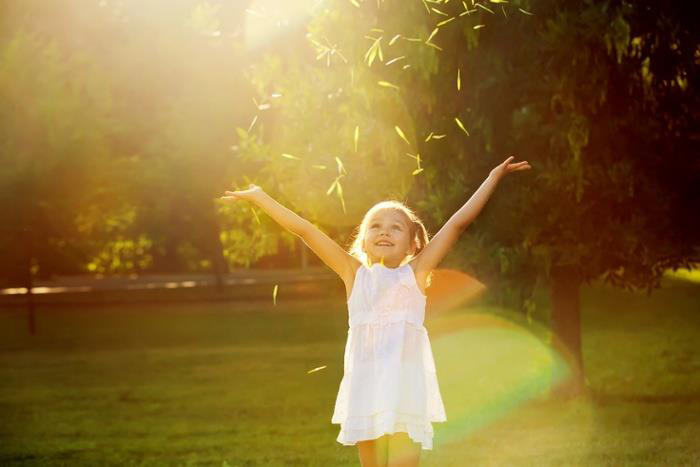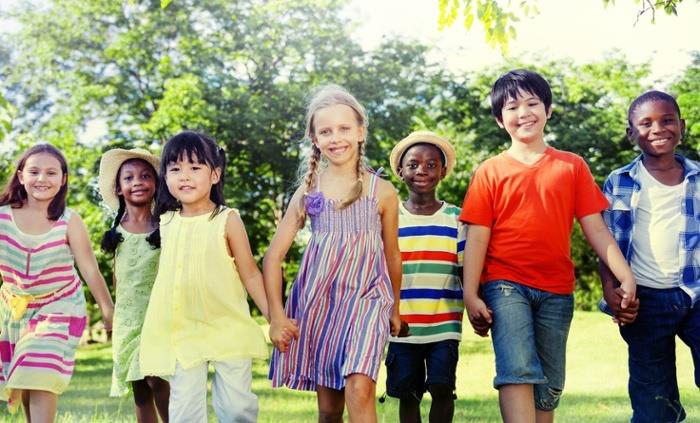Below are some of the outcomes that our program for kids will bring into your schools.
Noticed how kids are drawn to gadgets, social media, and technology more than we ever were in our youth? Modern day demands increasingly challenge us to think and respond more quickly than ever before — and kids are no exception. Constant stimulation during kids’ waking hours — from the internet, video games, social media, school assignments — demands them to jump from thought to thought. In such a case you want your child to turn their attention completely to one thing at a time and have the capacity to focus.
A study, by Italian neuroscientist Giuseppe Pagnoni, found that meditation not only changes brain patterns, but it also heightens mental focus that may improve cognitive performance. In the study, brain scans showed that compared to those who meditate, non-meditators had higher activity in their ventral posteromedial cortex, the region of the brain linked to spontaneous thoughts and mind-wandering. So this specially designed program boosts focus and clarity in children. They remain cool and calm even when facing a new situation which they are not habituated to. More and more children show less agitation in their homes by participating in our program.
Stress also can begin to impact children at a very young age, and stressful situations affect health and well-being almost immediately. Demands from academic studies, competition, and always having to “do things right” plays a huge toll on kids’ ability to relax. Bluntly put, too much stress inhibits peak performance. When the mind is calm, the body follows. When the mind is free of tension, it will function at its peak. Since meditation is known to help kids focus their energies and reduce tensions, overwhelming evidence suggests that it can help them perform better in school. In fact, meditation can have a profound impact on not only academics, but also athletic, creative and social performance.
A University of California, Los Angeles study found that second and third-graders who practiced meditation techniques for 30 minutes twice a week for eight weeks had improved behavior and scored higher on tests requiring memory, attention and focus than the non-meditators.
More and more schools are incorporating meditation in their learning programs, and it’s only a matter of time that meditation becomes a norm for education programs.
In our fast paced lifestyle, children face even more “fears” than ever before. There are fears of not being accepted, fears of too much change, fears of losing loved ones, or simply fears of not being “enough.”We want kids to be able to navigate through phases of insecurity, frustration, and impatience without too much distress. But prolonged fear-based stress on a child’s emotional development can be debilitating and have long-term repercussions. Our program allows children to access their natural rhythm of self-awareness and mindfulness — two key components of self-soothing, problem-solving, patience, and facing fears.
By teaching meditation to children, we help them become aware of this natural state and consequently help them to overcome any obstructive, negative emotions. Most of us as kids, at one time another, felt like we are not “good enough.”Childhood, especially during puberty, can be tough, and in a lot of cases, debilitating on our self-esteem and confidence. Naturally most of our present insecurities may have stemmed from childhood: An embarrassing situation that haunted you, not being the “cool kid” at school, not having “that” car, being bullied — any childhood situation that imprinted trauma or any negative belief about yourself. This program will provide access to a greater feeling of inner stability and security amongst young children. When a child learns to focus on the moment, his or her fears, self-doubt, and insecurities are transformed.

There’s now tangible, scientific evidence of how meditation increases kindness, compassion, and connectivity among adults and children alike. In a study at Northeastern University, researchers found that “meditation made people willing to act virtuous — to help another who are suffering — even in the face of a norm not to do so.” Researchers are uncertain of exactly why meditation heightens empathy and connectedness, but there are two possible reasons. First, meditation improves children’s attention-span and their ability to focus on specific things in their environment. Second, meditation creates neural pathways that allow children to see the interconnectedness of human suffering regardless of their relationships. Our guided programs foster loving-kindness builds self-love, compassion, and human or environmental connection on multiple levels. Our meditation program will deeply embed within children good positive seeds of behavior. The children will not feel jealous from others success but feel happy for them. They will respect their elders and shower love to younger kids. They will treat their belongings, books, natural environment around them respectfully and with care. Our guided meditation will make them aware that they are part of nature just like other humans, birds, animals and thus they will not become self- centered but think for welfare of entire world. We will show them our various interconnections and interdependencies for happy life. We will teach them the secret of quiet laughter and steer them away from envy. We will teach them there is also glory in failure and no shame in tears.

Yes, I can do it program is an exercise that we do in our workshop with children to make the child feel –yes, I can do everything that I set I my mind to. Nothing is impossible, unattainable and I have all the talents to achieve my goal. Henry Ford once said — ‘Whether you think you can, or you think you can’t–you’re right.’
Since a young age till teenager period a child is constantly exposed to negative affirmations. As a result of such impositions, restrictions the consciousness of child is stunted. Many children go into rejection mode. Their special talents do not flower and they continuously feel unworthy. Their right brain hemisphere which is the seat for creativity is snubbed. We have designed a meditation technique so that children are not limited to their education. This meditation technique is termed as exploring the mystery of universe. The child is asked to mentally traverse in the vast universe and experientially glimpse how their consciousness has limitless possibilities. We teach them programming of the mind to achieve any goal and the process of manifesting anything in real life.
Thanks therapy- Practicing attitude of gratitude towards everything- taking every situation with happiness.
Gratitude is about feeling and expressing appreciation: for all we’ve received, all that we have (however little it may be), and for all that has not befallen us. It functions as an antidote for attachment to what we want but don’t have and aversion to what we have but don’t want. Gratitude is the opposite of being discontented. It’s valuable to be aware that nearly all experiences have both “positive” and “negative” aspects. Even circumstances that are brutally physically and/or emotionally painful often contain considerable psycho-spiritual blessings in the forms of learning, growth, and healing. Sometimes we have to work harder to locate the positive and unearth its gifts (and sometimes these become manifest only in retrospect)—but if we make the time and invest the energy to look closely and search consciously, we will find them. There is always something to be grateful for, no matter how negative or desperate things may seem.
Gratitude changes perspective—it can sweep away most of the petty, day-to-day annoyances on which we focus so much of our attention—the “small stuff” situations that bring up feelings of impatience, intolerance, negative judgment, indignation, anger, or resentment. Gratitude is a vehicle to diffuse self-pity and self-centeredness, increase feelings of well-being, and prompt mindful awareness of that which is beyond oneself—of belonging to a greater whole, and of connection to others, as well as to the world.
Over the past decade, numerous scientific studies have documented a wide range of benefits that come with gratitude. These are available to anyone who practices being grateful. Gratitude facilitates contentment. It creates a sense of abundance in their lives. It also improves mood by enhancing feelings of optimism, joy, pleasure, enthusiasm, and other positive emotions. Gratitude promotes physical health enhances sleep. Gratitude strengthens relationships. Children can learn to appreciate the contribution of others to their well- being. Gratitude encourages “paying it forward.” Grateful people are generally more helpful, generous of spirit, and compassionate. These qualities often spill over onto others. We train children’s brain towards attitude of gratitude. Acknowledging the things each one is grateful for —on paper, with words, or even in thoughts—will help children cultivate an attitude of gratitude—and with it, a boost in happiness that will last in their growing up years.
Everything is created twice, first in the mind and then in reality- Robin Sharma
A natural way to introduce children to mindfulness is through guided imagery. Guided imagery is a meditative process that uses visualization and imagination to bring awareness to the mind-body connection. Children can easily access this healing process because they’re naturally imaginative. By relaxing into a vivid story they gain tools to deal with stress, pain or difficult feelings. It’s a wonderful way to connect with your child as they learn to listen to their inner wisdom and access their own power of healing. Psychology Today reported on a study in The Journal of Pediatrics, which found that guided imagery significantly reduces chronic stomach pain in children. In this study, 30 children with chronic stomach pain listened to guided imagery over an eight-week period; 63.1 percent experienced a significant decrease in their pain compared to just 26.7 percent in the control group who only received traditional medical care. An interesting side note to this study was the children’s complete compliance—everyone enjoyed listening to the guided imagery so much that they all wanted to complete the study.
Further research is showing that practicing guided imagery can create new neural pathways and reinforce positive behaviors. Our brains can’t distinguish between real events and imagined ones. When you imagine yourself in a situation your brain releases bio-chemicals based on your feelings about the person or event. For example, remembering a heated argument will release stress hormones in your body. While focusing on a loving person or joyful experience will increase levels of endorphins and serotonins, making you feel more relaxed and positive. Guided imagery encourages the brain to imagine positive and healing experiences, which helps to develop healthy coping skills and master new behaviors. By focusing your mind’s eye on accomplishing goals and creating a desired image of yourself, your brain creates new pathways to reinforce this behavior. This technique has been used for years by trainers and athletes to successfully build confidence and improve performance. We create a Visualization exercise for children by which their imagination powers are enhanced. Their individual decision making and memory is enhanced.
We teach them wonder of books but also give time to ponder the extreme mystery of birds in sky, bees in the sun and flowers of a green hill. We teach them to have faith in their own ideas. We teach them not to follow the crowd but chart out their own path. We teach them to have sublime faith in self, because then he or she will have sublime faith in mankind.

